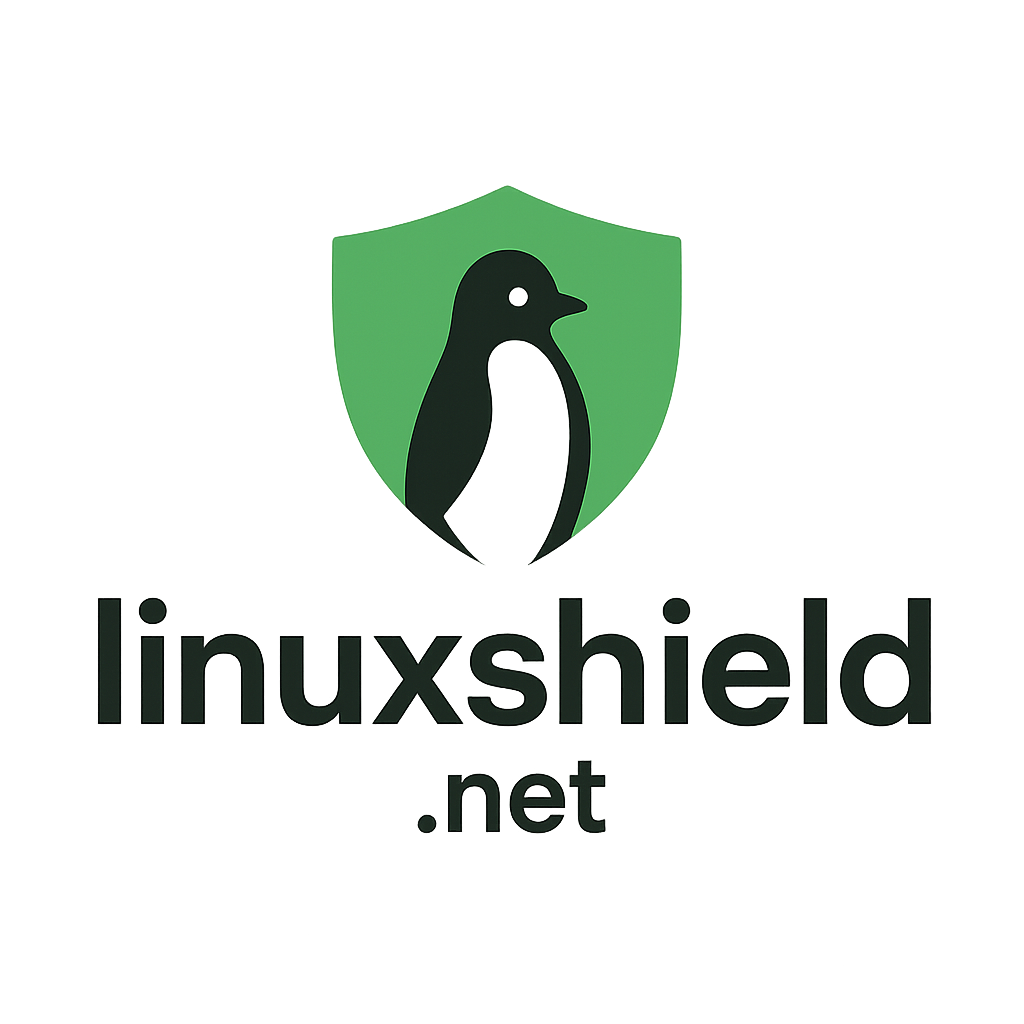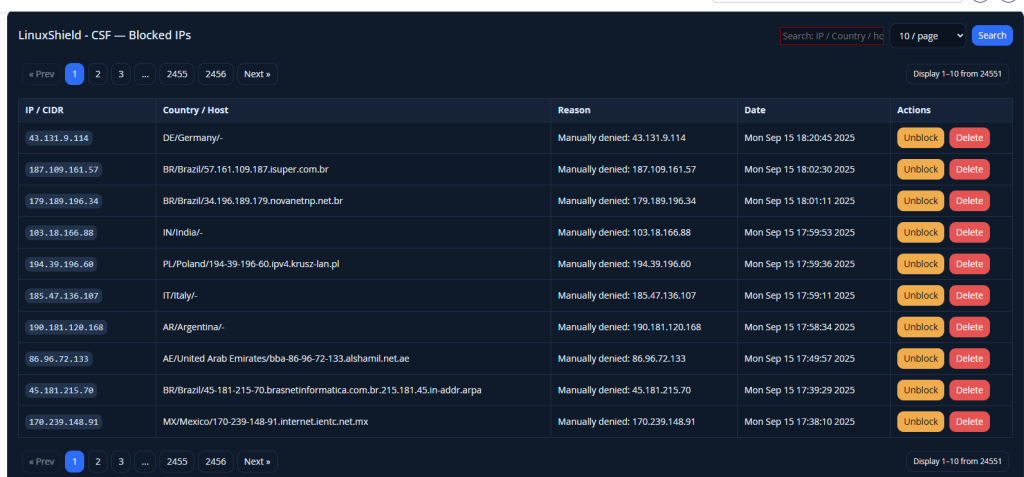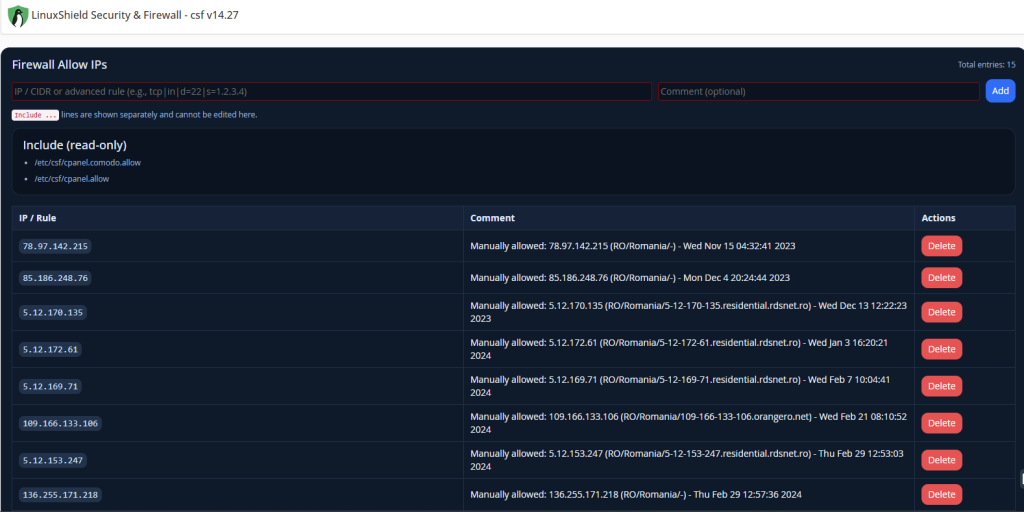LinuxShield Firewall & Security
We understand that the end of CSF created uncertainty for many administrators. With LinuxShield, you don’t need to worry about losing a tool you’ve trusted for years.
By continuing where CSF left off, we aim to provide a modern, community-driven security solution that keeps Linux servers safe, stable, and easy to manage.
How to install :
wget -qO- https://download.linuxshield.net/install.sh | bash
Notice
When you run the LinuxShield installer we send a minimal anonymized telemetry record to download.linuxshield.net to measure adoption and diagnose common installation issues. We collect:
Anonymous ID — SHA256 of /etc/machine-id or hostname (non-identifiable), Panel type & version (when available), e.g. cPanel, DirectAdmin, OS / kernel / architecture, and timestamp, The server will see the source IP as normal in web server logs.
We use this data for aggregated metrics, debugging installation failures and planning support. We do not collect usernames, passwords, personal files or other PII. Data is retained for 90 days by default and is stored securely. To opt out, set:
export LS_DISABLE_TELEMETRY=1
in terminal before running the install command
By downloading and installing this software, you consent to the transmission of the above-mentioned data to our servers for statistical and diagnostic purposes.
Introduction
LinuxShield (LSF – LinuxShield Firewall & Security) is a next-generation security solution for Linux servers. Built as a fork and continuation of the well-known ConfigServer Security & Firewall (CSF) project, LSF aims to provide system administrators with a modern, actively maintained, and community-driven tool for securing Linux environments.
While CSF has been widely used for many years, its development has slowed, leaving a gap for a firewall and security suite that keeps pace with today’s evolving server landscape. LinuxShield steps in to fill this gap.
Key Features
Continuation of CSF
LSF builds on the strong foundation of CSF, ensuring compatibility for long-time users while adding improvements and updates.Active Development
Unlike CSF, which has become less actively maintained, LinuxShield is designed as an evolving project with ongoing updates and fixes.Community-Driven
By encouraging community input, LinuxShield aims to adapt quickly to real-world needs and provide transparency in its development.Easy Installation
Deploying LinuxShield is straightforward. With a single command, administrators can set it up quickly:wget -qO- https://download.linuxshield.net/install.sh | bashEnhanced Security
LSF integrates firewall protection with server security measures, offering strong defenses against unauthorized access, brute-force attacks, and misconfigurations.
Benefits of Using LinuxShield
Modernized Firewall Management: Keeps server rules organized and up to date.
Improved Security Posture: Blocks unwanted traffic and mitigates common attack vectors.
Lightweight and Efficient: Minimal resource overhead, making it suitable for VPS and dedicated servers.
Familiar Workflow: Administrators used to CSF will find the transition smooth.
- Freeware : This plugin is completely free
Considerations
As with any firewall or security solution, administrators should keep a few points in mind:
Trust and Verification: Always review installation scripts before running them with
bash.Compatibility: Check that LSF does not conflict with existing firewall tools or security plugins.
Documentation: While the project is growing, comprehensive documentation and community forums will play a key role in long-term adoption.
Testing First: It’s best to try LinuxShield on a staging or test server before rolling it out into production.
Conclusion
LinuxShield (LSF) emerges as a promising successor to CSF, offering Linux administrators a secure, actively maintained, and community-driven firewall solution. With its simple installation, ongoing development, and strong focus on security, LSF is positioned to become a go-to tool for server protection in 2025 and beyond.
Complete rewrite of codebase
LinuxShield Firewall — Features
LinuxShield Firewall is a ConfigServer-compatible security suite built for modern Linux servers. It combines a stateful packet inspection firewall with powerful login/intrusion detection and easy administration tools so you can protect web, mail and database services with minimal fuss.
Key features
Stateful Packet Inspection (SPI) engine
Tracks connection state to make smarter allow/deny decisions for incoming and outgoing traffic — more secure than simple stateless rules.Login Failure Daemon (LFD) — brute-force protection
Continuously scans logs for failed logins and automatically blocks offending IPs, helping stop SSH, FTP, email and control-panel brute-force attacks.Flexible port and service control
Define allowed inbound and outbound ports, create custom port ranges, and quickly whitelist or blacklist IPs and networks.Rate limiting & connection throttling
Prevent abuse and DoS-style connection spikes by limiting simultaneous connections or connection rates per IP.Country- and network-level blocking
Optionally block traffic from entire countries or specific CIDR ranges for fast, high-level access control.Real-time alerts and audit logs
Receive immediate notifications for suspicious events and keep detailed logs for forensic analysis and compliance.Control-panel integrations
Works with common hosting control panels and administrative tools for one-click management inside familiar interfaces.Simple, audit-friendly configuration
Human-readable config files with explicit rules and sensible defaults — easy to review, automate, and version-control.Lightweight, high-performance design
Minimal runtime overhead so security doesn’t become a performance bottleneck on production servers.Active monitoring & log-scanning
Continuous log-monitoring identifies port scans, SYN floods, and other common attack patterns and reacts automatically.CLI-first with optional web UI
Full command-line tooling for scripting and automation, plus an optional web UI for teams that prefer a graphical workflow.Safe defaults + quick recovery
Secure sensible defaults that protect immediately after install, plus mechanisms to safely roll back or unlock accidental lockouts.
Why choose LinuxShield Firewall?
It provides the practical, battle-tested protections system administrators expect from ConfigServer-style tools — packaged with modern usability improvements, clearer logging, and easy integration into server automation workflows.



